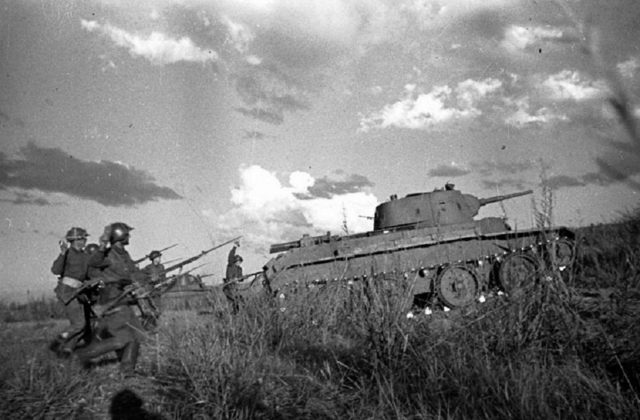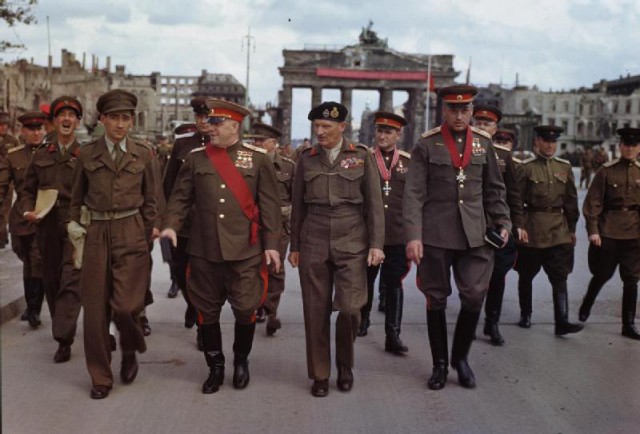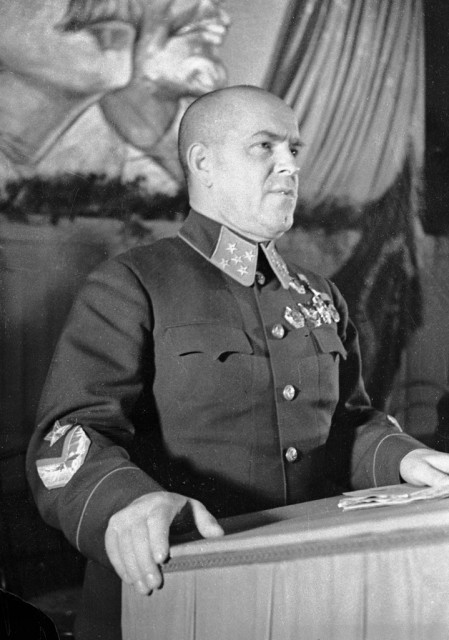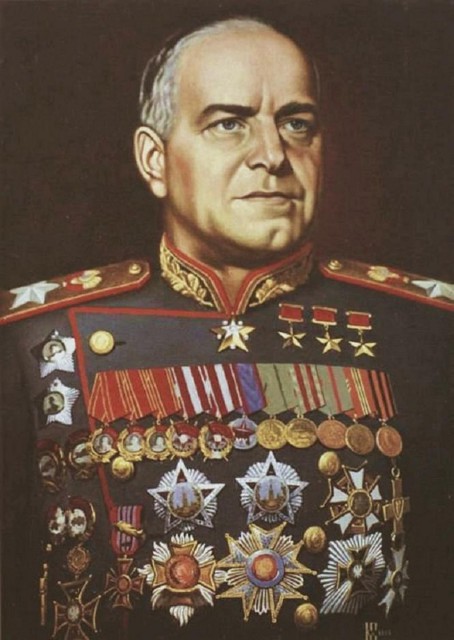George Zhukov was a Soviet career officer in the Red Army who played a most pivotal role during World War II. He led the drive through Eastern Europe with the aim of liberating the Soviet Union and other nations from the occupation of Nazi Germany.
Amongst many notable generals in World War II, Zhukov was well known and highly regarded for his victories and his talent in operational and strategic command. Many famous leaders, such as Bernard Montgomery and Dwight D.Eisenhower recognized his great contributions.

Zhukov was born in 1896 and was conscripted into the army of the Tsar where he spent the rest of his life. In 1938, he was appointed for commanding the First Soviet Mongolian Army Group, which was defending in the border between Mongolia and Manchukuo.
Border skirmishes, initiated by the Japanese for testing the Soviets, quickly escalated into a full-scale war with the Japanese employing over 80,000 men as well as numerous tanks and aircraft.
In one highly successful attack, he used artillery, fighters, and bombers, as well as hundreds of tanks to encircle the Japanese and push them back into Manchukuo. He demonstrated and tested the techniques that would be used against the Germans further into the War.
He was declared a Hero of the Soviet Union and promoted to Army General. In 1941, he was promoted to Chief to the General. He was later relieved at the end of July 1941 because he wanted to give up the Ukrainian capital Kiev.

He commanded the Leningrad front and prepared the city for defense. He took over the southwestern front to defend Stalingrad and was involved in Operation Uranus. This Operation trapped and destroyed the German 6th Army. Later he was a Stavka coordinator at the Battle of Kursk.
According to his memoirs, he played a central role in the planning of this monumental battle and the successful offensive that followed this battle. However, this is disputed by the Commander of the Central Front, Konstantin Rokossovsky.
Zhukov commanded two fronts during the destruction of the German Army in Operation Bagration and then oversaw the Vistula-Oder offensive, which brought the Red Army from Berlin where he forced Hitler to commit suicide.
After the Nazis had been defeated, Zhukov became the first commander in Germany. Zhukov requested that transports were made urgently to Berlin, to bring in grains, potatoes, cattle, and other foodstuff.

However, Stalin was getting paranoid because Zhukov was building and maintaining good relationships with the other commanders-in-chief.
Being a famous war hero, he was viewed by Stalin as a potential threat to his leadership. Stalin replaced him with Vasily Sokolovsky in April 1946.
After an unpleasant session in the Military Council, he was accused of political unreliability and hostility and was stripped of his position as Commander-in-chief of the Soviet Ground Forces. He was assigned to the Odessa Military District, which was lacking strategic significance and troops.
After a heart attack in 1948, he was sent to the Urals Military District. On February 1953, Stalin ordered him to leave this post and recalled him to Moscow. Several opinions suggested Zhukov was required for Korean War service; but, once he was in Moscow, he was never given any orders.
On March 1953, Stalin suddenly died. On June 1974, Zhukov died after suffering another stroke. Contrary to his last will, his body was cremated, and his ashes were buried at the Kremlin Wall Necropolis, alongside fellow generals and marshals of the Soviet Union and the later Russian Federation.

